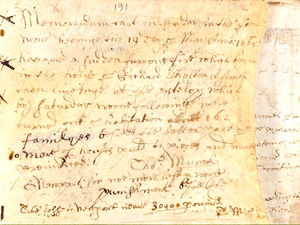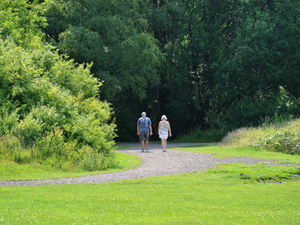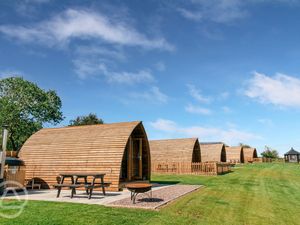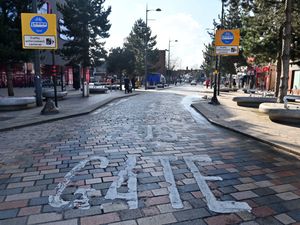Places of worship adapting as coronavirus pandemic halts gatherings
Places of worship around the region have been talking about how they are dealing with the coronavirus pandemic.
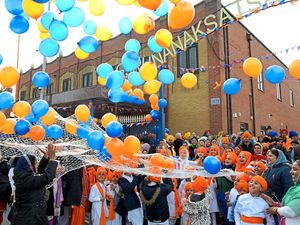
The Guru Nanak Satsang Gurdwara in Wolverhampton is one of many Gurdwara’s in the region which is having to adapt to the changing times.
Ranjit Singh, sports secretary at the Gurdwara, said the plan was to stay open, but with some restrictions on numbers.
He said: “The congregation has been advised that they should only come in if they have to and not in large crowds as such.
"In terms of staying open or not staying open, there have been directives from the Sikh Council to operate within reason and not to hold mass gatherings.
The Baitul Muqeet Mosque in Walsall is one of many mosques within the Ahmadiyya Muslim faith to stay open for prayers and worship.
Hamid Pariq, president of the Walsall Association, said numbers attending were down, owing to a large number of the congregation being older and more vulnerable.
He said: “We have regular prayers five times a day and usually welcome 30 people, but that has gone down to less than 15 over time.
"We need to ensure that all the members are safe so we’ve been running a very heavy campaign in terms of the cleaning.
"We do a deep clean every two days, making sure all the handles are properly washed and with the special chemicals and antibacterial products.”
Both places have looked at the options of using live-streaming and other online tools to help worshippers.
Mr Singh said: “I am sure there is something being planned within the committee. I do know that anyone who can’t get to the Gurdwara will be able to pray at home and they will have the details of what prayers they are doing at the time.”
Mr Pariq said: “Going forward from this Friday, we are going to follow the example of our community in Canada, who live-stream services.”
‘It’s sad but the right thing to do’ as Catholic services suspended
Catholic services and masses will join the growing list of public events which have been suspended.
A letter, signed by the President of the Bishops’ Conference, Cardinal Vincent Nichols, and the Vice-President, Archbishop Malcolm McMahon, declared public Masses and other liturgies would be suspended this week.
It also stated priests who hold parochial office should continue to celebrate Mass in a church within their parish, daily, without the faithful.
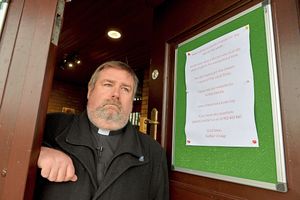
Other priests may also celebrate Mass without the faithful, while Deacons should not participate in those celebrations.
Confessions may be heard if social distancing is observed – for example, if the priest and penitent are separated by a grille and a cloth.
Restrictions have also been put on Baptisms, First Confessions, First Holy Communion and Confirmations, while weddings will also be deferred as necessary.
Father Craig Fullard holds regular services at St Joseph’s Church, in Wolverhampton, and spoke about his reaction to the announcement.
He said: “Obviously it’s very sad, but it’s also the right thing to do in order to protect the public and to protect those people who wish to gather together.
"One of the main things Cardinal Nichols said is that we can be joined together in prayer and support one another in other ways through this difficult time.”
St Joseph’s is part of the St John Henry Newman Cluster of Catholic Parishes, which covers East Park in Wolverhampton, Bilston, Darlaston and Willenhall.
Father Craig said it was a tough decision and one which would cause pain for a lot of people, but was right to help put people’s health first.
He said: “I’m sad that we’ve got to this stage in our country. But that’s nobody’s fault, it is where we are and we must all now do the right thing.
"I certainly won’t blame anybody and I certainly don’t think it’s the fault of the government or anything like that.”
Father Craig said it was a time for the church and the people to show how strong the church is and how it can be in times of need.
Time to work together says Bishop of Lichfield
Physical distancing is necessary, but we can all work together to rebuild our society following this period.
That is one of the views of the Bishop of Lichfield, the Right Reverend Michael Ipgrave, following the call for public worship to be put on hold.
The Bishop was informed of the announcement by the Archbishop of Canterbury Justin Welby and Archbishop of York John Sentamu and gave his thoughts on the decision to suspend public services.
He said: “Well, clearly, it’s not something that any of us wanted to do but, in the circumstances, I think it’s the only prudent thing to do.
“It is following our government’s latest advice and, as responsible citizens, we need to do that.
“So it’s with great regret that we’re suspending public worship, but I think it is absolutely the right thing to do in the circumstances.”
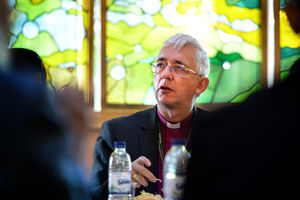
The Diocese of Lichfield, which Bishop Michael is the lead Bishop for, covers five counties, 429 parishes and more than 580 churches, across the West Midlands, Staffordshire and Shropshire.
Bishop Michael said there were two focusses for the Diocese and the churches going to allow the congregations in the parishes to continue worship.
He said: “Firstly, there is our life together as a church and as a church that comes together to worship. Now, clearly, we’re not going to be able to do that in a physical way, but we need to look at ways of sustaining people’s faith.
“We’re keeping our churches open for private individual prayer as much as we can and we’re just experimenting and developing live streaming of services.
“There is a whole range of things that we’re going to look at, particularly with Easter approaching, of how we can stay together virtually as worshipping communities.
“The other thing, which is just as important, is how we can attend to those who are most in need.
“This includes the most vulnerable, particularly the elderly people with medical conditions, those who are self-isolating and people with mental health issues.
“We are looking at how we can keep supportive contact with them when we cannot keep physical contact.” Bishop Michael acknowledged this is uncharted territory for all of us in society and recognised that challenges laid ahead.
He also said churches are in the middle of all communities and said the clergy and parishioners on ground level would know what practical steps would help the people in their communities.
Going forward, Bishop Michael spoke of the new ways the church could express itself while services are suspended, particularly with Easter coming up.
He said: “What we don’t know of course is how long this will last.
“It will probably take us through the Easter season, which is a particularly significant time for Christians and every denomination.
“We have faith in in God though and I think we have a message of hope that we can share with others.”
Bishop Michael said the use of social media would also be key in terms of utilising all forms of non-physical contact.
He said: “Social media, which has many good points and many bad points, can play a real role in a time like this of bringing people together, socially, even when they’re physically distant.
“As a church, we need to use that in every other means of non-physical contact that we can.”
With no definitive time limit of how long the virus will last, Bishop Michael spoke about how people will need to come together in the aftermath of the pandemic.
He said: “We will need to give people the confidence to reunite and get to know one another again and rebuild the repair the damage to the fabric of our society.
“I think it’s necessary that we keep that distancing, but we must make sure that when this is over, we come together again and rebuild our society.”
In their joint letter, the Archbishop of Canterbury and Archbishop of York called on churches to adapt.
They said: “Being a part of the Church of England is going to look very different in the days ahead.
“Our life is going to be less characterised by attendance at church on Sunday, and more characterised by the prayer and service we offer each day.
“We may not be able to pray with people in the ways that we are used to, but we can certainly pray for people. And we can certainly offer practical care and support.
“Please do carry on supporting the local foodbank and buy extra provisions for it. Ensure the night shelters wherever possible are kept open.
“There are many very encouraging schemes happening right across our country in communities to focus on caring for the most vulnerable and do continue to play your part in those.
“Then by our service, and by our love, Jesus Christ will be made known, and the hope of the gospel – a hope that can counter fear and isolation – will spread across our land.”
The archbishops also invited clergy to maintain the ancient pattern of daily prayer and, where possible, the eucharist – live streaming their worship if they have the resources to do so.
And they urged congregations to be in the forefront of providing practical care and support for the most poor and the most vulnerable during the crisis.
The Church of England had already announced that the cup of wine, used during the Eucharist, would no longer be passed around for people having Holy Communion at sites including St Paul’s in central London.
But it said it had no choice but to stop services in order to prevent the gathering of crowds.
The Archbishops added that it was now time for members of the church to show their Christian faith through practical actions, adding: “This is a defining moment for the Church of England. Are we truly are a church for all, or just the church for ourselves.
“We urge you sisters and brothers to become a different sort of church in these coming months: hopeful and rooted in the offering of prayer and praise and overflowing in service to the world.”
The archbishops have joined other church leaders in calling for a day of prayer and action this Sunday – Mothering Sunday. They say people should particularly remember those who are sick or anxious and all involved in health and emergency services.

